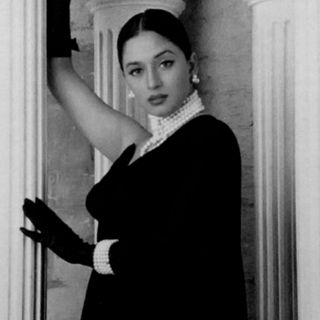
3 White, Male Scientists Win 2020 Nobel Prize in Medicine
The Nobel committee continues to ignore the diverse and collaborative nature of scientific discovery.

The 2020 Nobel Prize for Medicine went to Harvey Alter, Michael Houghton, and Charles Rice for discovering the Hepatitis C virus. Houghton, in particular, was a controversial choice for the Nobel Committee as he’d declined the Gairdner Award in 2013 because his colleagues, Dr. Qui-Lim Choo and Dr. George Kuo, did not receive any credit or mention. Dr. Choo and Kuo did not receive any mention in other prestigious prizes awarded to Houghton either — like the Lasker Prize, or now, the Nobel Prize. This, even when Dr. Choo and Dr. Kuo were first authors on two landmark papers published in the journal Science — which means their hands-on work was pivotal to aiding the discovery of the Hepatitis C virus.
Houghton had apparently attempted to convince the Gairdner Foundation to expand their prize list to include his colleagues but had to eventually decline the US$100,000 (around Rs. 74 lakh) prize after discussions turned hostile. While the internet was rife with rumors of Houghton declining the Nobel Prize for the same reason, the scientist did eventually accept the honor. However, the reason he gave for his acceptance signals weariness. “I think it would be really too presumptuous of me to turn down a Nobel… Their regulations and their processes are based on Alfred Nobel’s will, and I don’t think it’s feasible to discuss that kind of thing with them,” Houghton said to Nature.
The Nobel Prize has long been the pinnacle of achievement globally, yet it’s winners do not seem to represent global achievement — almost all Nobel Prizes in the sciences are won by lone, white, male scientists. Even though all the individuals who have received the award have made extraordinary contributions towards scientific progress, the Nobel committee’s range of choices puts forth the perception that they believe only lone, white, male scientists are capable of these extraordinary contributions. This, of course, is patently untrue — modern science is built on teamwork and the efforts of scientists with different races, genders, and identities.
Related on The Swaddle:
More Women Are Authoring Medical Research Than Ever Before
The Nobel Prize Committee has made attempts to encourage diversity. In an interview with Nature, Royal Swedish Academy of Sciences secretary-general Göran Hansson states there has been a “positive trend” of more women being nominated since the Academy, which awards the Science Nobels, made changes to its nomination process. These changes include asking more women to nominate candidates and tweaking the letter inviting nominations to encourage diversity in gender and geography.
But that is simply not enough. The Academy still rigidly sticks to three awardees rather than opening up the award to teams of scientists. Women have received only around 2.8% of all the Nobel science prizes awarded since 1901 when the first prize was awarded. No Black scientists have ever won a Nobel Prize. India has only four Nobel science prize winners — all upper-caste men. Imagine the change that could occur to these statistics if the Nobel Prize allowed entire teams to win. Or, if the committees that award these prizes made more radical changes to the processes that govern their choice of awardees, rather than mere ‘tweaks’ in invites.
The Nobel Prize is a prestigious, exclusive sign of status that frequently informs public perception of what type of science is important, the type of people making these discoveries, and the types of subjects and scientists that deserve funding for future research. However, this limits the scope of brilliance in science to a small subset of people in a limited number of fields. Either it is time for the Nobel Committee to change how it views scientific progress, or it is time for the world to stop canonizing both the prize and its recipients as the frontiers of innovation.
As Houghton, in his acceptance speech, said, “Great science, often, is a group of people, and I think going forward we somehow need to acknowledge that.”
Aditi Murti is a culture writer at The Swaddle. Previously, she worked as a freelance journalist focused on gender and cities. Find her on social media @aditimurti.
Related


Woe Is Me! “I Can’t Find a Date in My Small Town!”
